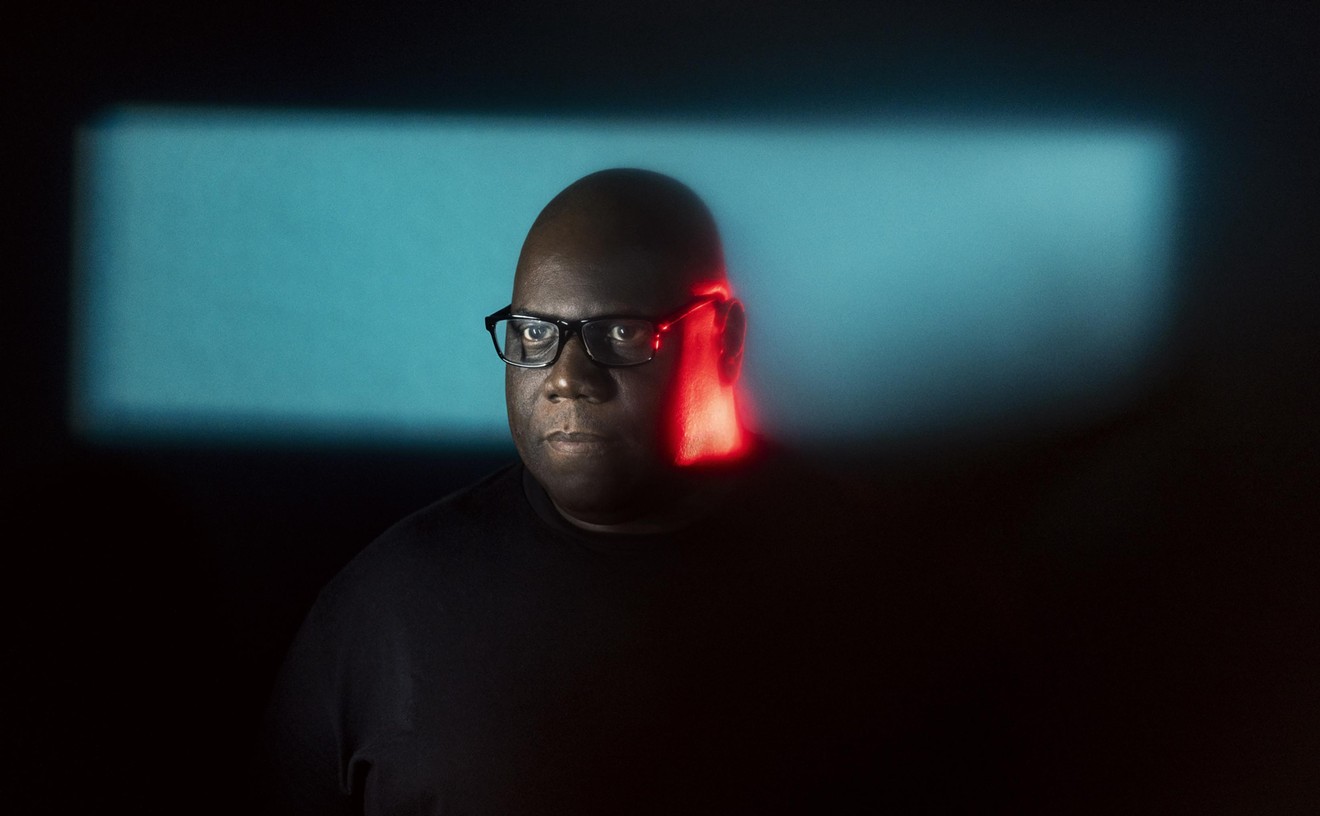In a pivotal scene of the 1978 kung fu classic The 36th Chamber of Shaolin, the protagonist poses an existential question: “Do men have a right to say what they believe in? Or must they always do what the government says?” It’s a simple line that has come to define the film’s overarching theme — the oppressed versus the oppressor — and one that resonates with the multitalented artist RZA 40 years later.
The founder and de facto leader of the legendary hip-hop group Wu-Tang Clan, RZA has been a lifelong fan and student of kung fu cinema. As a child in late-'70s NYC, he and his cousin and future bandmate Russell Tyrone Jones — the late Wu-Tang rapper Ol' Dirty Bastard — would skip school to attend screenings of kung fu films at the St. George Theatre in their native Staten Island. It was there and then that RZA experienced his first screening of The 36th Chamber, widely considered one of the greatest martial arts films of all time and one of the biggest influences on the future Wu-Tang sound and ethos.
Though the film was set in 18th-century China, The 36th Chamber resonated with a young RZA, who drew cultural parallels between the film’s oppressed Chinese villagers and his own experience as a young black man growing up in America.
"It was [The 36th Chamber], and its historical approach and the backdrop that the story was in, that’s changed my whole view of martial arts film,” RZA says. "It sparked me in a social and cultural way as well. It wasn't the average kung fu movie where the guy goes to get revenge. This is a movie about a man against oppression who has to go through a lot of training to better himself and master himself. Then he returns to his community. And what does he do? He inspires his community. That's just as good as Malcolm X to me, as far as the story. It's just as good as the civil rights movement. It just had a resonation for me, especially at that tender, teenage age going through puberty and wondering about the world."
The through line connecting the film and the wider Wu-Tang universe is undeniably clear. After forming the group with his cousins and friends, RZA reimagined The 36th Chamber in the context of his urban NYC upbringing. The result: Enter the Wu-Tang (36 Chambers), the group’s breakthrough 1993 debut album and the greatest chapter in the Wu-Tang legacy.
To this day, traces of The 36th Chamber live in the group's expansive discography, including the infamous album Once Upon a Time in Shaolin — the one that "Pharma Bro" Martin Shkreli purchased for $2 million in 2015 and was forced to hand over to the feds this year — and the group’s 2017 release, The Saga Continues.
Most recently, RZA has resurrected the film for his newly relaunched Live From the 36th Chamber of Shaolin Tour, which will touch down in Miami this weekend as part of III Points’ annual 4/20 party — III Joints — alongside Earl Sweatshirt and Suzi Analogue. Launched in 2016, the audiovisual show concept sees RZA live-scoring the film in full as he syncs scenes with songs from Wu-Tang Clan’s two-decade-spanning discography.
His live-scoring approach is decidedly more digital — using DJ decks, synthesizers, and drum machines, with 80 percent of the show’s playlist determined in advance — than that of the common orchestra/live musician. But he believes the show has evolved since its initial test run two years ago.
“The first few times we did it, we had a lot of technical problems to overcome,” he says. “I was doing it by myself; it was just me, and I was fucking moving like an octopus. What evolved is that I saw what worked and what didn't work... It's one of those things, though, that you still never know.”
The tour is the next installment in RZA’s ever-evolving trajectory as a multifaceted artist. Outside of his life as one of hip-hop's forefathers, he's an accomplished actor — counting multiple cameos and roles in films such as Funny People, American Gangster, and G.I. Joe: Retaliation — and film composer, having scored both installments of Quentin Tarantino’s Kill Bill, which earned RZA a BAFTA Film Awards nomination in 2004. In 2012, he became a real-life kung fu hero when he wrote, directed, and starred in the martial arts film The Man With the Iron Fists.
The live-scoring project now marries his lifelong passions for film, music, and kung fu culture.
"The film plays beautifully no matter what," he says. "But with the new underscore of the music and the vibe, it actually changes the frequency. You're watching the kung fu; you're seeing it happen. It's not [over] a techno beat; it's not a Hollywood-orchestrated beat. It's a classic hip-hop track, and now you’re watching these kung fu guys fight over it. I think that's cool."
Both The 36th Chamber of Shaolin and the Wu-Tang Clan album it inspired celebrate major milestones this year, the former reaching the 40-year mark and the latter celebrating its 25th anniversary this November. And though the two seemingly come from different worlds, RZA still sees the cultural bridge connecting them.
“If you look at today's society, [the film] resonates [with] me on both sides of the spectrum,” he says. “In this film, our hero is going through different chambers, and I think every man goes through different chambers till he realizes himself. If he's going to be able to master himself and overcome the things that he fell short in, then life will be better for him. You think of a story like that and the triumph of somebody finding themselves and able to discern the proper path of what to do in those situations; that's gonna always resonate. So this movie, to me, still makes sense and it still has its point, and not just from the oppressive part — more importantly, from the self-triumphing [part]."
Still, don’t expect RZA to hang up the mike anytime soon. For him, this is his culmination as an artist.
"For me, film is actually the embodiment of all my talent," he says. "I didn't know that as a music producer. But now, as a film director, I realize that every form of my creativity is film-related: musically, visually, lyrically. Film is not [me] leaving music; it's actually elevating music and bringing all my creative talent to one focal point. I can see me being in film for the rest of my life as long as the industry and the people allow me and support me to do such."
III Joints. With RZA, Earl Sweatshirt, DJ Earl, Suzi Analogue, and others. 4 p.m. Friday, April 20, at the Anderson, 709 NE 79th St., Miami; theandersonmiami.com. Tickets cost $45 via showclix.com.
[
{
"name": "Air - MediumRectangle - Inline Content - Mobile Display Size",
"component": "19274298",
"insertPoint": "2",
"requiredCountToDisplay": "2"
},{
"name": "Editor Picks",
"component": "17482312",
"insertPoint": "4",
"requiredCountToDisplay": "1"
},{
"name": "Inline Links",
"component": "18711090",
"insertPoint": "8th",
"startingPoint": 8,
"requiredCountToDisplay": "7",
"maxInsertions": 25
},{
"name": "Air - MediumRectangle - Combo - Inline Content",
"component": "17482310",
"insertPoint": "8th",
"startingPoint": 8,
"requiredCountToDisplay": "7",
"maxInsertions": 25
},{
"name": "Inline Links",
"component": "18711090",
"insertPoint": "8th",
"startingPoint": 12,
"requiredCountToDisplay": "11",
"maxInsertions": 25
},{
"name": "Air - Leaderboard Tower - Combo - Inline Content",
"component": "17482313",
"insertPoint": "8th",
"startingPoint": 12,
"requiredCountToDisplay": "11",
"maxInsertions": 25
}
]











